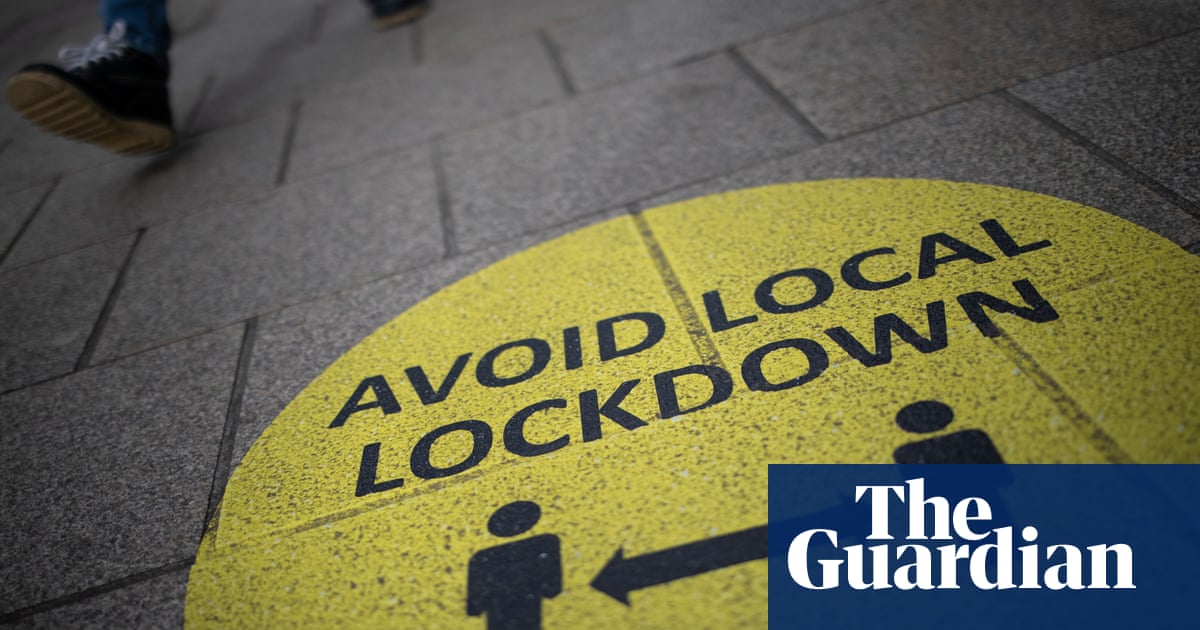
More final-year pupils than ever before are applying to local universities so that they can study closer to home, amid concerns that the impact of the pandemic may extend into the next academic year.
Year 13 pupils across the country are currently finishing their applications ahead of the 15 January deadline, after which universities are no longer required to consider applications equally.
A Ucas survey of more than 20,000 pupils planning to go to university suggested that nearly a quarter (23%) want to study closer to home, accelerating a longer-term trend.
“Young people in our focus groups have said they don’t want to be far from their support networks. That’s been thrown into sharp relief by pictures in the media of students struggling in halls,” said Sarah Barr Miller, head of insight at the Universities and Colleges Admissions Service (Ucas).
“Traditionally, we had a boarding school system of higher education. You absolutely did not consider your local university. But we see a lot now want to stay local.”
Marimar Antypa, a student at St Charles Catholic Sixth Form College in west London, said she had applied only to local universities to save money and stay close to family. “I see the purpose of university as getting a job. If you’re just going there to have fun, how is that beneficial for your future?”
Rob Trimble, deputy vice-chancellor of the University of Cumbria, said he had already seen a 10.5% increase in inquiries this year, with substantial rises in applications for vocational courses such as nursing, medical sciences, teaching and business.
For some low- and mid-ranking universities, local students enable them to stay afloat. Ray Powell, an admissions tutor at the University of Greenwich in south London, said that in recent years more selective universities had been “poach[ing] our higher-performing students” to fuel expansion, following the removal of the student numbers cap. “But increasingly, because of accommodation costs and all the rest of it, a good, local university is an attractive option.”
A survey of 1,200 year 12 and 13 pupils by Access HE, a London social mobility charity, indicated that 30% thought the pandemic had made it more likely they would go to university. Nearly half (42%) of pupils on free school meals planned to study locally, compared with a third (30%) of their better-off peers.
This has been the experience at East Norfolk Sixth Form College in Gorleston-on-Sea, near Great Yarmouth, which has a high proportion of pupils from some of the UK’s most deprived postcodes. “We’ve seen a further increase in students wanting to go to good quality local universities,” said principal Catherine Richards. One pupil, Aref Shafiei, has opted for medicine at the University of East Anglia, his nearest institution, as his top choice after he was inspired by the NHS’s work during the pandemic. He has already taken part in one of its outreach programmes. “I’m a bit biased because of my relationship with the university,” he said. “And I get homesick.”
Graeme Atherton, head of Access HE, warned that focusing on local universities could limit young people’s choices. “It’s encouraging that more young people from across income groups want to go on to university, but every young person deserves the opportunity to progress to the university that best suits their abilities.”
Competition for university places is expected to be particularly fierce as experts predict more pupils will apply than ever before. Barr Miller said Ucas was expecting a 5% jump in applications this year, despite a dip in the number of British 18-year-olds. This would follow on from a 12% increase in applications submitted before the early deadline of 15 October for medicine, dentistry and veterinary sciences, as well as for places at Oxford and Cambridge.
She added that a projected decline in applications from EU students, who will pay higher fees after Brexit, might free spaces: “Savvy teachers will be recommending their students apply to the big-name universities because there’s a chance they’ll get in.”
Some universities, including Birmingham and Sussex, have pledged to consider applications from students with lower grades as a result of disruption to their education during the pandemic.
Mark Corver, an admissions expert and founder of dataHE said that although the January deadline didn’t always follow October trends, he expected applications from 18-year-olds to rise. “This is because they generally do, employment alternatives are less attractive and predicted grades and any AS results will be higher than normal,” he said.












